Since 2014, it seems that the “Opposition Party” in India is lifeless. Prime Minister’s popularity at national as well as International level is one of the causes behind it. Apart from the same there are many crises such as lack of strong leadership, electoral campaigning and strategy, lack of cooperation towards allies, lack of trust and missing connection with masses etc. There are many issues on which the opposition party should have a balanced approach of criticizing but they always misguide the people.
Whenever the central government comes up with any policy, Instead of giving suggestions to improve, the Opposition criticizes and does not have belief in the policy. There are many issues in India, for instance, Demonetization, GST, NPR, CAA, Farm Law, Article 370, Agnipath Scheme and securities issues. These issues need to have positive analysis and should have a helping hand to resolve the various drawbacks. Sometimes the opposition party gives irrelevant remarks in the context of religion, is it necessary to prove the religion? Is politics only seen as a religious base or It has many perspectives?
After the ruling party’s recent victory in state assembly elections in Uttar Pradesh, Uttarakhand, Goa and Manipur, and the continued disarray in the Opposition, the vision of a grand Opposition coalition against the ruling government has evaporated. To be sure, the world’s largest democracy is a country without a national Opposition. Opposition states are living through a particularly difficult age as all the niceties of cooperative federalism have been abandoned by the current regime. Notably, A basic failure of the opposition has also been its failure to set the appropriate political agenda and goals.
Endeavors to remain afloat in the face of regional powerhouses have also produced dismal results, for instance, getting zero seats in Bengal and single digit in UP. And when it comes to Opposition vs BJP, even if the Opposition wins, the current central dispensation has a high strike rate in toppling the regimes through defections. The Opposition, meanwhile, has not revealed any strategy and plan. In 2017, Opposition had managed to win a meagre seven assembly seats with just 6% of the vote — both were its lowest ever in UP.
However, the Opposition party is reportedly deeply interested in philosophies of the globe. Hopefully such party chiefs won’t spend all the energy attempting to pursue their own tails. The assumptions are exceptionally low, so maybe they can pull a surprise. At the core of the issue is the daintily spread out opposition that has a notional presence in India, but lacks depth and gets immediately uprooted. The opposition parties are constantly stuck with bunched types of representativeness limited to a few explicit gatherings and can’t broaden this umbrella beyond a few identities.
The Opposition is caught in this cross-fire and gets shot at like a bystander. It is neither able to claim a monolithic Hindu identity as the ruling does. Nor is it ready to connect with more modest gatherings given its old model of accommodation around bigger matrices like the Dalits, Muslims, and upper ranks. It gets found out in how social biases work out between sub-castes and sub-regional characters. Neither does it fan them nor relieve them.
It winds up in a dead zone, and hence, there is a deficiency of connection with individuals and a shrinking social base. Even on the economic front of the discourse on development, the Opposition party is caught in a similar dilemma. It cannot critique the policies of the leading government because it had intended to implement most of them, including GST, farm laws, four-year education courses, contractual employment, private universities and social security measures.
Meanwhile, Chief Justice of India NV Ramana asserted that the space for Opposition in India is diminishing. Speaking at an event in Rajasthan’s Jaipur, Ramana stated that it’s “unfortunate” that it’s happening. India is also seeing decline in legislative performance. There used to be mutual regard between the government and Opposition. Unfortunately, space for opposition is diminishing.Tragically, the country is witnessing a decline in the quality of legislative performance, the Chief Justice of India asserted.
Consequently, Indian democracy is described by a system of mutual accountability of the ruling party and opposition party and a much-crucial deliberative interaction. They play a significant role in preserving the true essence of the vibrant democracy. However, today, the Opposition party is not merely fragmented but also in disarray. To strengthen the role of the opposition party in India, the institution of “Additional Cabinet” can be formed to balance the ruling cabinet. In this system each action of a ruling Cabinet Minister must be countersigned by the minister in the Additional Cabinet.




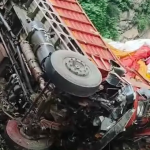
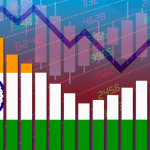
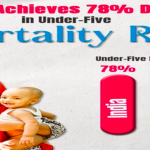
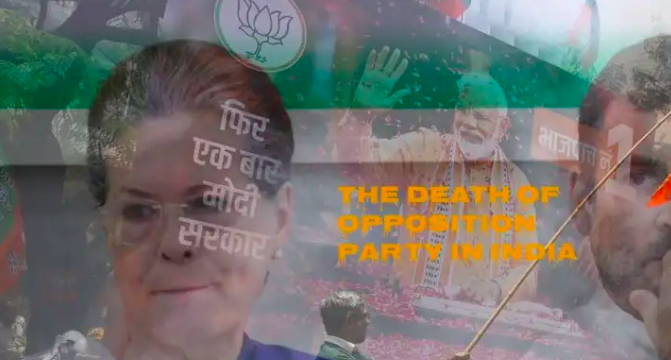

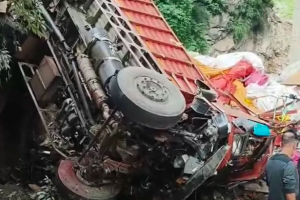

Add Comment